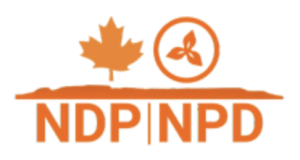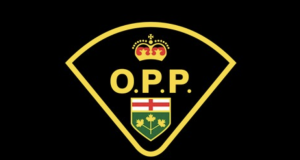 The Ontario government is providing Pollution Probe with $375,000 to collect plastic waste from marinas around the province using innovative plastic-capture technology. This will be the largest initiative of its kind in the world to tackle plastic pollution in provincial lakes and waterways. Every year an estimated 22 million pounds of plastic pollution end up in the Great Lakes.
The Ontario government is providing Pollution Probe with $375,000 to collect plastic waste from marinas around the province using innovative plastic-capture technology. This will be the largest initiative of its kind in the world to tackle plastic pollution in provincial lakes and waterways. Every year an estimated 22 million pounds of plastic pollution end up in the Great Lakes.
“Our government is committed to protecting our water resources and Great Lakes, and that includes tackling the millions of pounds of plastic pollution that enter our province’s waterways each year,” said Minister Yurek. “That is why I am proud to support this important initiative with Pollution Probe, which will help safeguard our precious water resources and the ecosystems that depend on them, for future generations.”
Pollution Probe is installing two types of plastic capture technologies: Seabins and LittaTraps to help capture litter and plastic pollution in up to 12 marinas throughout the province, including:
- The Harbour West Marina and Cobourg Marina on Lake Ontario
- The Erieau Marina on Lake Erie
- Mitchell’s Bay Marine Park on Lake St. Clair
- The Bridgeview Marina and Sarnia Bay Marina on Lake Huron
- The South Bay Cove, Hindson Marina, Point Pleasant Marina and the Township of Georgian Bay on Georgian Bay/Lake Huron
The Seabin can collect over eight pounds of waste each day including microplastics, larger plastic items like water bottles, food wrappers and other floating debris. Littatraps are installed inside storm drains to catch waste before it enters the waterway.
As part of its funding agreement with the province, Pollution Probe will analyze the types and amounts of waste collected and publicly share the results to help increase awareness of plastic pollution and its proper disposal.
“Pollution Probe is pleased to welcome the Government of Ontario to the Great Lakes Plastic Cleanup,” said Christopher Hilkene, CEO of Pollution Probe. “With the province’s support we are creating the largest initiative of its kind in the world to tackle plastic pollution in our waters. The technologies we are deploying will clean plastic and other debris from the Great Lakes and what we collect will contribute to important research that will fill knowledge gaps and support effective policy decisions. The Great Lakes Plastic Cleanup will also play an important role in empowering people to take action in their communities.”
The Toronto Zoo is also collaborating with Pollution Probe on the Great Lakes Plastic Cleanup initiative. The installation of the Seabin and Littatrap at the Toronto Zoo will help to further raise awareness of plastic pollution in waterways.
“A key role of the Toronto Zoo is helping raise awareness of the many threats to our natural world and the challenges that animals who call it home face. We are excited to participate in the Great Lakes Plastic Cleanup initiative to ensure more people know about these issues and have tools to help be part of the solution,” said Dolf DeJong, CEO of the Toronto Zoo.
Ontario’s investment in plastics capture technology is in addition to the $7.47 million the province recently announced to support 65 projects that address a variety of environmental challenges facing the Great Lakes, such as increased levels of pollutants, excess nutrients and rising levels of invasive species.
- Manitouwadge’s myRide program concludes on March 31, 2026 - January 23, 2026
- Ladies Curling Standings – January 20 - January 22, 2026
- Michipicoten Volunteer Fire Department Receives Generous Donation from LLP Building Solutions - January 21, 2026
 Wawa-news.com Local and Regional News
Wawa-news.com Local and Regional News

